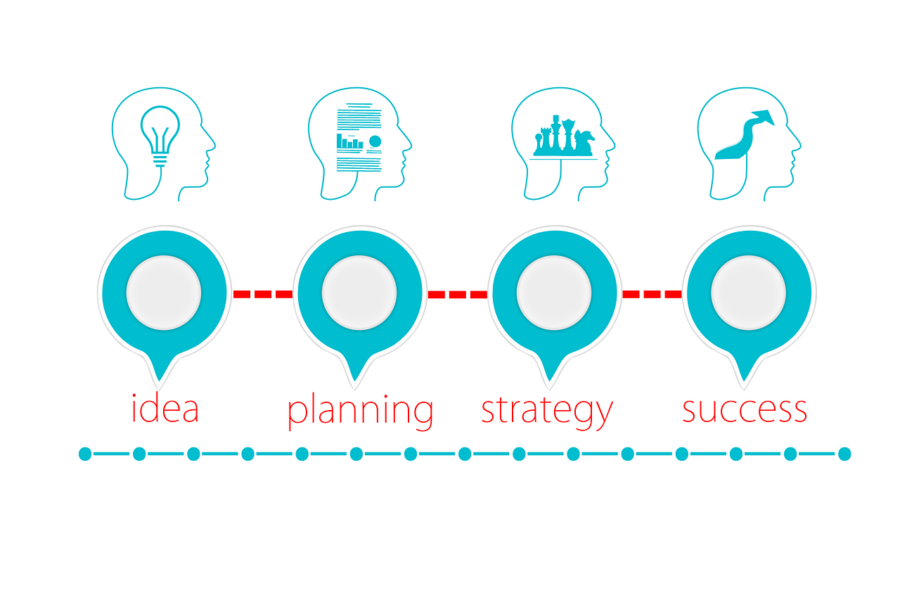An effective team comprises of people who are working towards achieving a common goal. They hold themselves accountable and complement each other’s skills. However, an effective team can easily become dysfunctional.
Team members can suddenly become undervalued, competitive, and overwhelmed. It goes to show that there’s a problem somewhere. Distrust, lack of commitment, and communication barriers can cause dysfunction.
Sometimes, it could be neglect on the part of leaders. Many team members feel insecure and unappreciated. They should be allowed to voice out their opinions and be given tasks that match their skills. Here are 7 steps to help you turn around a dysfunctional team.
Identify the Root of the Problem

Anemone123 / Pixabay
A team’s dynamic can change overnight. You need to identify the root of the problem and address it. This can be resentments, power struggles, personality clashes, lack of communication, or poorly skilled team members.
The best way to understand what’s going on is to ask members of your team. They know why they are unhappy and unmotivated. It’s important to seek possible solutions to the problem so things can become normal again.
Create a Shared Vision

geralt / Pixabay
As a leader, you should make sure that your team understands your company’s vision. Set specific and tangible goals so your team knows what they’re looking to achieve. Then, break them down into small chunks so you can delegate tasks to everyone.
It’s also important to establish accountability within your team. Everyone needs to be committed and dedicated to the roles assigned to them. Make sure to hold your team accountable so they can become focused and more productive.
Assign Clear Roles

geralt / Pixabay
Members of your team should be given tasks that match their unique capabilities. People find it easier to do work that they are experienced in. Make sure to always give clear instructions so they can know what’s expected of them.
When you assign matching roles to your team, they will be willing to take on more tasks. This helps to increase work output and employee satisfaction. You should also give clear feedback so they can know where to make adjustments.
Become a Better Leader

Kevinsphotos / Pixabay
A leader can make their team become dysfunctional. Some people are natural leaders while others are managers. It doesn’t matter where your strength lies, you should always look for ways to become a better leader.
There’s no shortage of courses and continuing education on management and leadership and if you aspire to become a better leader, additional study is well worth the investment. Likewise, if you wish to not only become a better leader but wish to advance your career in leadership, it may be worth going back to school to pursue a master’s in management and leadership. Not only will it help you with your skills, but you’ll be able to apply for positions that require advanced degrees.
Outside of additional education, you should also reflect on how you communicate with your team. How do they feel about you? It takes a good leader to move a team forward. Consider working personal change, growth, and development to continually strive to be a better leader and team member.
Upskill your team

mohamed_hassan / Pixabay
Most of your team members are looking to improve their skills. They may feel inadequate with their current abilities. As a leader, you can build your team’s confidence by helping them learn new skills. The more knowledgeable and skilled your team is, the better they perform.
There are many cost-effective ways to upskill your team. You can encourage them to further their education or take professional courses. It’s also a great idea to organize in-house training and invite mentors or experts to teach some vital topics.
Create a Space for Communication

Free-Photos / Pixabay
To turn around a dysfunctional team, you have to allow them to freely express their thoughts. Pay attention when they talk about their challenges and frustrations in the workplace. Let them feel free to make suggestions and recommendations.
It’s also necessary for you to communicate effectively. Everyone needs to understand what the project is about and why they need to put in their best. Make sure to share enough information so they won’t have to guess about anything.
Recognize Their Successes

2649771 / Pixabay
Leaders should learn to acknowledge the efforts of their team members. After crushing their goals, show your team how much you appreciate them. It doesn’t have to be anything huge. A simple “well done” or “thank you” would go a long way.
Many leaders do not recognize the successes of their teams. They only give criticisms and harsh feedback. You should encourage your team each time they exceed your expectations. It boosts their self-esteem and makes them feel motivated.
Conclusion
If your team is becoming dysfunctional, the tips above can help you fix the underlying issues. A collaborative team can help you achieve your business goals in no time. You just need to make sure that the members of your team are happy and satisfied.
It’s also important that you work on becoming a better leader. You can read books, attend seminars, take a professional course or get a leadership coach. They will teach you how to become more strategic as a leader.
Featured image by Pexels from Pixabay
Business & Finance Articles on Business 2 Community
(69)
Report Post





